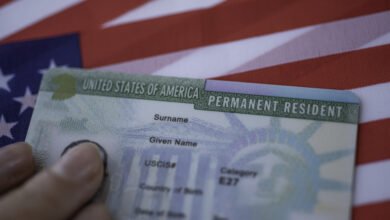Understanding Prenuptial Agreements in New Jersey What You Should Know
Prenuptial agreements in New Jersey protect assets before marriage. Learn about requirements benefits and how to create a valid prenup. Essential legal guide.

Prenuptial agreements in New Jersey are legally binding contracts that allow couples to define financial rights and responsibilities before marriage. Commonly referred to as “prenups,” these agreements outline how assets, debts, and spousal support will be handled in the event of divorce or death. While some may view prenups as unromantic, they serve as practical tools for protecting individual financial interests, especially for those with significant assets, business ownership, or children from previous relationships. Understanding how these agreements work under New Jersey law is essential for couples who want to secure their financial future while maintaining transparency in their relationship.
In New Jersey, prenuptial agreements are governed by the Uniform Premarital and Pre-Civil Union Agreement Act, which sets specific legal standards for enforceability. Without a prenup, state divorce laws will determine how property is divided, which may not align with a couple’s wishes. Whether you’re entering a marriage with substantial wealth or simply want clarity on financial matters, a well-drafted prenuptial agreement can provide security and prevent future disputes. This guide explores the key aspects of prenups in New Jersey, including legal requirements, common provisions, and potential challenges to help you make informed decisions.
Understanding Prenuptial Agreements in New Jersey
Definition and Purpose of a Prenuptial Agreement
A prenuptial agreement is a legally binding contract established between two partners before marriage, designed to clarify financial rights and obligations in the event of divorce or death. These agreements typically address Asset and debt division (how marital and Prenuptial Agreements property will be distributed). Spousal support (whether alimony will be paid and under what terms). Protection of premarital assets (safeguarding inheritances, family wealth, or business interests). Clarity for blended families (ensuring assets pass to children from prior relationships).
Legal Framework in New Jersey
New Jersey enforces prenuptial agreements under the Uniform Premarital and Pre-Civil Union Agreement Act, which outlines specific requirements for validity Voluntary consent: Both parties must enter the agreement willingly, without coercion. Full financial disclosure: All assets, debts, and income must be transparently disclosed. Fair and reasonable terms: The agreement cannot be unconscionable or leave one spouse financially vulnerable. Written and signed: Oral agreements are invalid; the document must be in writing and signed by both parties. Without a prenup, New Jersey’s equitable distribution laws govern asset division in divorce, which may result in outcomes that differ from the couple’s Prenuptial Agreements.
Legal Requirements for a Valid Prenuptial Agreement in New Jersey
Voluntary Agreement Both parties must enter the agreement willingly, without coercion or duress. If one spouse was pressured into signing, a court may invalidate the contract. Full Financial Disclosure Both individuals must fully disclose their assets, debts, and income. Hiding financial information can render the agreement unenforceable. Fair and Reasonable Terms The agreement cannot be unconscionable or grossly unfair to one party at the time of signing. A court may reject provisions that leave one spouse financially devastated. In Writing and Signed Oral prenuptial agreements are not valid in New Jersey.
What Can Be Included in a New Jersey Prenup?
Prenuptial agreements in New Jersey can cover a wide range of financial and legal matters, including Property Division Couples can specify how marital and separate assets will be divided in a divorce. Spousal Support (Alimony) The agreement can outline whether alimony will be paid and, if so, the amount and duration. Debt Responsibility The contract can define which spouse is responsible for premarital and marital debts. Inheritance Rights Couples can waive or modify inheritance claims to each other’s estates. Business Interests Business owners can protect their enterprises from being divided in a divorce.
When Should You Consider a Prenuptial Agreement?
While prenups are often associated with wealthy individuals, they can benefit various couples, including High-net-worth individuals who want to protect investments, real estate, or family wealth. Business owners seeking to shield their company from divorce-related disputes. Those with previous marriages who want to ensure assets go to children from prior Prenuptial Agreements. Couples with significant debt who wish to avoid assuming their partner’s liabilities. Individuals expecting future wealth, such as inheritance or career advancements. Even if you don’t fall into these categories, a prenup can provide financial clarity.
Potential Pitfalls and Challenges
Despite their benefits, prenuptial agreements can face legal challenges if not properly drafted. Common issues include Lack of Legal Representation If one spouse did not have an attorney, they might later claim they didn’t understand the agreement. Unfair Terms Courts may reject provisions that leave one spouse with no financial support. Last-Minute Signings If the agreement is signed too close to the wedding, a court may rule that one party was pressured. Changes in Circumstances Major life changes (e.g., childbirth, job loss) may require updates to the prenup.
Enforcing a Prenuptial Agreement in New Jersey
If a couple divorces, a judge will review the prenup to determine its validity. Courts generally uphold agreements that meet legal standards, but they may invalidate clauses that are unjust or violate public policy. For example, a provision denying all spousal support may be rejected if it leaves one spouse impoverished. If a prenup is challenged, the burden of proof falls on the Prenuptial Agreements seeking to enforce it. They must demonstrate that the agreement was entered voluntarily, with full disclosure, and without fraud or coercion.
Modifying or Revoking a Prenuptial Agreement
Prenups are not set in stone couples can amend or revoke them after marriage, provided both parties agree. Changes must be made in writing and signed by both spouses. Additionally, certain life events (e.g., having children) may prompt revisions to ensure fairness. If no modifications are made, the original agreement remains binding unless a court finds it invalid.
Alternatives to Prenuptial Agreements
For couples who are already married, a postnuptial agreement serves a similar purpose. These agreements follow the same legal standards as prenups but are created after the wedding. They can be useful if financial circumstances change or if the couple initially opted against a prenup. Another option is a cohabitation agreement for unmarried partners who wish to define financial responsibilities without marriage.
Read More: Gun Law Violations in Texas Legal Defenses That Work
Conclusion
Prenuptial agreements in New Jersey provide couples with valuable financial protection and peace of mind as they enter marriage. By clearly outlining the division of assets, spousal support, and other financial matters, these agreements can prevent costly disputes and ensure both parties are treated fairly if the marriage ends. While some may hesitate to discuss a prenup, viewing it as unromantic, it ultimately serves as a practical tool that fosters open communication and financial transparency between partners.
For New Jersey couples considering a prenuptial agreement, consulting with an experienced family law attorney is essential to ensure the document meets all legal requirements and reflects both parties’ best interests. When properly drafted and executed, prenuptial agreements in New Jersey offer a clear roadmap for financial responsibilities, protecting individual assets while allowing couples to focus on building a strong, secure future together. Whether you have significant wealth, business interests, or simply want clarity on financial expectations, a well-structured prenup can be a wise investment in your marital foundation.
FAQs
Are prenuptial agreements enforceable in New Jersey?
Yes, if they meet legal requirements such as voluntary consent, full financial disclosure, and fairness at the time of signing.
Can a prenup include child custody or support terms?
No, New Jersey courts determine child-related matters based on the child’s best interests, regardless of a prenup.
What happens if a spouse hides assets before signing?
The agreement may be invalidated if one party concealed financial information.
Can a prenup be changed after marriage?
Yes, couples can modify or revoke a prenup with a written and signed postnuptial agreement.
Do both spouses need separate lawyers?
While not mandatory, independent legal counsel helps ensure fairness and reduces the risk of future challenges.











